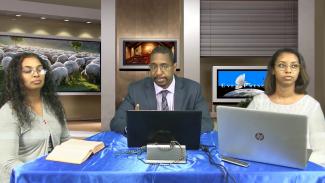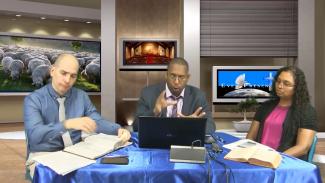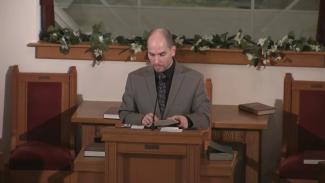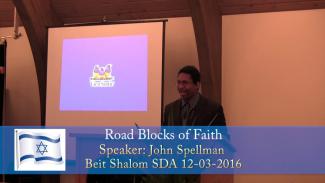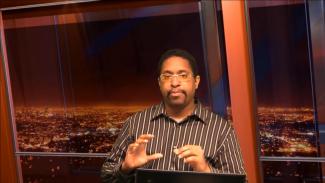Topic: Miscellaneous
To see more broadcasts select show names, a year, or all video media.What does it mean to be a leader? How are leaders to shepherd God’s flock? How does worldly leadership compare with spiritual leadership? What can we learn about leadership from God Himself? Is it really possible to have leadership without partiality? What is the role of an elder? What did Peter learn about leadership from Jesus? How does all this compare with Satan’s rebellion and counterfeit leadership?
John Spellman gets ordained as an elder of the Babylon SDA Church on February 11th, 2017.
John Spellman preaches at the Beit Shalom SDA Congregation discussing roadblocks in our faith. How can traditions and customs block us from being able to experience a relationship with God? Should traditions influence how we understand God's Word? What did the prophets think about anything that contradicted the Torah and the testimony? Is it possible that today, with the abundance of YouTube scholars, and misinformation, that many have darkness thinking they have light? While some traditions can be a good thing, many customs and traditions are holding people in darkness.
What was the relationship between Peter, Jesus, and the church? How should we understand Jesus' words that upon the rock would he build his church? Who was this rock? Protestants and Catholics have long debated this passage but what secrets do the Greek manuscripts hold that make the matter more clear? In this study John Spellman goes into depth explaining the passage Matthew 16:18 in a way you may never have heard before. Why does it matter who Jesus is to us? Why is it important that we see Him as the rock?
Is there a war going on that we may not see but experience the effects? Is the idea of the great controversy Biblical? Who are the key players in this conflict? Who will ultimately be the winner in this contest? How does God prepare us for spiritual warfare? Does being a prophet of God mean that one will not experience difficulty or oppression? Does God prevent His people from suffering all the time? How did misconceptions about Jesus' first arrival play a role in the lives of His people? Why did John the Baptist have a moment of doubt? What evidence was given that Jesus was the Messiah?
What does Proverbs say about humility and pride? What wisdom is there in being humble? This particular set of proverbs was contributed by Agur, who scholars know very limited information about. What wisdom does Agur have for family relationships? How should children relate to their parents when they get old? In what ways do the words used in these Proverbs connect with God's discussion with Job? What statements are made about God as Creator?
This week, in our exploration of Proverbs, we focus on Proverbs 26-28. Solomon has a lot to say about what lies beneath the surface. Often, people where a mask. We don't always see who a person truly is until they have a chance to show their true colors. Likewise, many only superficially understand things while not looking and digging deeper to obtain true wisdom. The fool wears the mask of wisdom, the lazy wear the mask of fear, and enemies wear the mask of friends. How can Solomon's wisdom help us to avoid being hurt by why lies beneath the masks we encounter?
What is truth and how does God expect us to relate to truth? Are only Biblical writers given wisdom from God? Does God give wisdom to secular rulers or people? How should the wise relate to the poor? Does God expect the poor to receive partial treatment? Is it ok to be partial toward the rich? How should we relate to truth and what does God expect us to do once we have access to truth? This week's study focuses on Proverbs 23-24.

